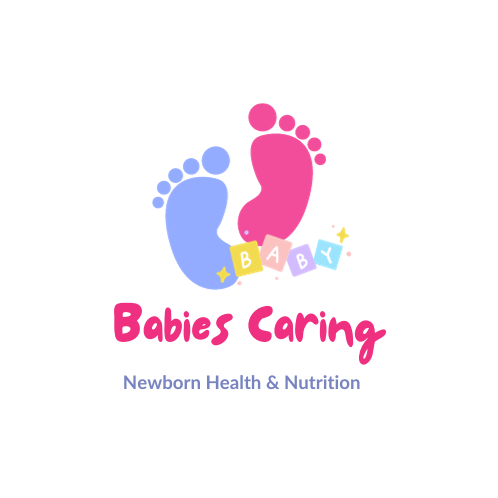“Embarking on the Journey: An In-Depth Exploration of Pregnancy Complications List!”
Are you ready to dive into the intricate world of pregnancy complications? Strap in because we’re about to take you on an extraordinary voyage through the labyrinth of potential challenges that can arise during pregnancy.
From the perplexing preeclampsia to the enigmatic gestational diabetes, we’re here to shed light on these complex matters. Our mission is to provide you with a thorough understanding of these multifaceted issues that can sometimes accompany the beautiful journey of motherhood.
In the following pages, we’ll unravel the mysteries of various common and lesser-known pregnancy complications. We’ll discuss intricate medical terminologies and uncover the enigmatic factors that contribute to these challenges.
But don’t worry, this isn’t just a clinical manual; it’s your trusted guide, written in a friendly and approachable tone. We’ll intersperse detailed explanations with practical advice and heartwarming stories to ensure you’re well-prepared for anything coming your way during this incredible journey.
So, join us on this captivating expedition as we navigate the twists and turns of pregnancy complications and arm you with the knowledge you need to confidently face any bumps in the road. Your voyage begins here!

Introduction:
Embarking on the pregnancy journey is a profound experience, yet one must navigate the intricate landscape of potential challenges. The term Pregnancy Complications List encompasses a spectrum of health issues that may arise during gestation, necessitating vigilant awareness. From the nuanced intricacies of gestational diabetes to the subtleties of preeclampsia, this curated list encapsulates the diverse potential hurdles. Understanding these complexities empowers expectant parents with the knowledge to address and mitigate risks, fostering a healthier pregnancy proactively. In this informational exploration, we unravel the tapestry of pregnancy complications, offering insight into their manifestations and proactive measures.
The Importance of Understanding Pregnancy Complications List:
Understanding pregnancy complications is crucial for expectant mothers and their healthcare providers. It helps in early detection and management, ensuring a healthier pregnancy journey for both the mother and the baby.

What to Expect in This Comprehensive Guide:
In this comprehensive guide, we will delve into familiar and lesser-known pregnancy complications, decipher the medical terminology, explore factors contributing to difficulties, share real-life stories, and provide practical tips for expectant mothers. Get ready to embark on an informative and empowering journey!
Chapter 1: Common Pregnancy Complications
Top 10 “First signs of pregnancy before missed period”
Preeclampsia: The Silent Threat:
Definition and Symptoms:
Navigating the delicate realm of pregnancy and understanding the nuances of the Pregnancy Complications List is paramount. Pregnancy complications are multifaceted challenges that can manifest in various forms, demanding vigilant awareness. From the subtle eddies of gestational diabetes to the complex interplay of preeclampsia, each complication carries distinct markers. Symptoms, often subtle, may include heightened blood pressure, unusual swelling, or fluctuations in blood sugar levels. A nuanced comprehension of these signs empowers individuals to recognize potential issues early, facilitating proactive measures to ensure a healthier pregnancy. In this discourse, we unravel the intricacies of definitions and symptoms, illuminating the landscape of pregnancy complications.
Risk Factors:
Embarking on the maternal journey entails an exploration of intricate pregnancy complications. Unraveling the web of potential challenges involves understanding the labyrinthine risk factors inherent in gestation. From genetic predispositions to environmental influences, the journey is uniquely shaped by age, pre-existing health conditions, and lifestyle choices. The synergistic dance of these factors can amplify the likelihood of complications outlined in the elusive Pregnancy Complications List. Delving into the obscure corridors of medical terminology, it becomes evident that a nuanced comprehension of these risk factors empowers expectant parents, guiding them towards informed choices and proactive measures for a smoother trajectory through pregnancy.
Diagnosis and Management:
Preeclampsia can be diagnosed through regular prenatal check-ups, including measuring blood pressure and assessing protein levels in the urine. If diagnosed, management may involve bed rest, medications, and close monitoring to prevent complications for both the mother and the baby.
Gestational Diabetes: Managing Blood Sugar During Pregnancy:
Understanding Gestational Diabetes:
Gestational Diabetes, a pivotal facet of the intricate Pregnancy Complications List, involves aberrant glucose metabolism during pregnancy. Hormonal shifts can compromise insulin efficiency, impacting blood sugar levels. Vigilant monitoring, dietary adjustments, and potential medication constitute the multifaceted approach to navigating this nuanced facet of maternal health.
15 Tips “How to manage morning sickness in pregnancy”
Risk Factors and Screening:
Understanding the intricate interplay of the Pregnancy Complications List in maternal health involves discerning risk factors. Screening, a pivotal proactive measure, employs diagnostic tools to identify potential challenges early. From genetic predispositions to lifestyle influences, this nuanced process ensures a vigilant approach to maternal well-being.
Dietary and Lifestyle Management:
If diagnosed with gestational diabetes, dietary and lifestyle changes are crucial. It may involve monitoring your blood sugar, following a specific meal plan, and incorporating regular physical activity. Managing gestational diabetes is essential for a healthy pregnancy and delivery.
Preterm Labor: The Race Against Time:
Identifying Preterm Labor:
Identifying preterm labor is crucial to protect the health of both the mother and the baby. Signs may include regular contractions, lower back pain, abdominal cramps, or a change in vaginal discharge. It’s essential to recognize these symptoms and seek immediate medical attention.
Causes and Risk Factors:
Several factors can contribute to preterm labor. These include infections, multiple pregnancies, a history of preterm birth, or certain medical conditions. Understanding the causes and recognizing risk factors can help healthcare providers take preventive measures.
Preventive Measures and Treatment:
Preventing preterm labor is a priority. Your healthcare provider may recommend bed rest, medications, or cervical cerclage if at risk. Timely intervention can improve the chances of carrying the baby to full term, ensuring a healthier start in life.

Chapter 2: Lesser-Known Pregnancy Complications:
Placenta Previa: A Mysterious Barrier:
Defining Placenta Previa:
Placenta Previa emerges as a distinctive challenge in the intricate landscape of the Pregnancy Complications List. This condition unfolds when the placenta abnormally covers the cervix, posing potential risks during childbirth. Vigilant monitoring and tailored birthing plans are essential to navigate the complexities associated with this nuanced complication.
Types and Symptoms:
Navigating the intricate Pregnancy Complications List, and understanding diverse types is crucial. From gestational diabetes to placenta previa, each presents unique challenges. Symptoms are the whispers of potential issues—subtle or pronounced, they demand attention. Recognizing these nuances empowers expectant parents to engage with the complexities of maternal health proactively.
Treatment Options and Outcomes:
Treatment for placenta previa varies depending on the severity and the gestational age of the baby. Options may include bed rest, close monitoring, and, in some cases, a cesarean section. Understanding the available treatments and potential outcomes is essential for a successful pregnancy journey.
Ectopic Pregnancy: The Implantation Mystery
Understanding Ectopic Pregnancy:
Ectopic pregnancy occurs when a fertilized egg implants outside the uterus, usually in the fallopian tube. This condition is risky and can’t result in a healthy pregnancy. Understanding ectopic pregnancy is essential to recognize the signs and seek help.
Signs and Symptoms:
Symptoms of ectopic pregnancy may include abdominal pain, vaginal bleeding, and shoulder pain. Early detection is critical, as the condition can lead to a medical emergency. Recognizing these signs is vital for prompt action.
Diagnosis and Management:
If ectopic pregnancy is suspected, a healthcare provider will use ultrasound and blood tests to diagnose it. Treatment often involves medication or surgery to remove the ectopic pregnancy. Timely diagnosis and management are crucial for the mother’s safety.
Molar Pregnancy: An Uncommon Phenomenon:
Unraveling Molar Pregnancy:
Molar pregnancy is a rare condition where abnormal tissue grows in the uterus instead of a fetus. Understanding this phenomenon is crucial for expectant mothers, as it can have profound implications.
Diagnosis and Treatment:
Diagnosis of molar pregnancy is typically made through ultrasound and blood tests. In most cases, the abnormal tissue must be removed through a procedure. Timely diagnosis and treatment are essential to avoid complications.
Emotional Impact and Support:
Experiencing a molar pregnancy can be emotionally challenging. Mothers may need emotional support and counseling to cope with the loss and the possibility of future pregnancies. Understanding the emotional impact and seeking help are crucial aspects of managing molar pregnancy.
Chapter 3: The Enigma of Medical Terminology:

Deciphering the Jargon:
Common Medical Terms Related to Pregnancy Complications:
Understanding medical terminology related to pregnancy complications is crucial for effective communication with healthcare providers. Learn key terms such as “preeclampsia,” “gestational diabetes,” and “placenta previa.”

Making Sense of Abbreviations and Acronyms:
Medical documents often feature abbreviations and acronyms. Deciphering these codes, such as “BP” for blood pressure or “C-section” for cesarean section, ensures clear communication and informed decision-making.
The Role of Medical Professionals:
Who’s Who in Your Pregnancy Care Team:
Familiarize yourself with the various healthcare professionals who may be part of your pregnancy care team. Knowing their roles helps ensure comprehensive care.
Communicating Effectively with Healthcare Providers:
Effective communication with your healthcare team is essential. Learn to ask questions, express concerns, and share your medical history. Assertive communication is critical to receiving the best care during your pregnancy journey.

Chapter 4: Factors Contributing to Complications:
Genetics and Family History:
Understanding the Genetic Component:
Genetic factors can play a significant role in pregnancy complications. Explore how your genetic makeup can influence your risk of certain conditions.
The Impact of Family History:
Family medical history can provide valuable insights into potential pregnancy complications. Discover how your family’s health history may affect your pregnancy journey.
Lifestyle and Environmental Factors:
How Lifestyle Choices Affect Pregnancy:
Lifestyle choices, such as diet, exercise, and substance use, can impact the risk of complications. Learn how your daily decisions can affect your pregnancy.
Environmental Factors to Consider:
Environmental factors, including exposure to pollutants and toxins, can contribute to complications. Understanding these external influences is crucial for a healthy pregnancy.
Stress and Emotional Well-Being:
The Connection Between Stress and Complications:
Stress can have a profound impact on pregnancy. Explore the relationship between stress and complications and how managing stress is vital for a smoother pregnancy journey.
Coping Strategies for Emotional Well-Being:
Discover effective coping strategies to reduce stress and maintain emotional well-being during pregnancy. Learning to manage stress can be a critical factor in preventing complications.
Chapter 5: Personal Journeys of Overcoming Complications:
Inspiring Stories from Moms Who Faced Complications:
Personal Accounts of Triumph:
Hear firsthand from mothers who faced pregnancy complications and emerged stronger. These inspiring stories offer hope, resilience, and practical wisdom.
Lessons Learned and Words of Encouragement:
Discover the valuable lessons these mothers have learned through their experiences. Gain words of encouragement and tips for navigating your challenges.
Interviews with Medical Experts:
Expert Insights and Advice on Managing Complications:
Gain invaluable insights from medical experts who specialize in pregnancy complications. Learn about the latest research, treatments, and best practices for managing and preventing complications.
Chapter 6: Practical Tips for Moms-to-Be:
Staying Healthy Throughout Pregnancy:
Nutrition and Exercise:
Maintaining a healthy diet and staying active during pregnancy are vital. Discover what foods to incorporate, exercises to consider, and how they contribute to a healthy pregnancy.
Regular Prenatal Check-ups:
Prenatal check-ups are essential for monitoring your and your baby’s well-being. Learn about the importance of regular visits to your healthcare provider and what to expect during these appointments.
Recognizing Early Warning Signs:
When to Seek Medical Help:
Understanding when to seek medical help can be a lifesaver. Explore the signs and symptoms that should prompt immediate attention from your healthcare provider.
Trusting Your Instincts:
A mother’s intuition is a powerful tool. Discover the importance of trusting your instincts and advocating for your health and your baby’s health.
Building a Support System:
The Importance of a Supportive Network:
A supportive network of friends and family can make a difference during your pregnancy journey. Learn why having a support system is crucial.
Connecting with Other Expectant Mothers:
Connecting with other expectant mothers can provide valuable emotional support and shared experiences. Explore how to communicate with peers going through similar challenges.
Conclusion:
- Summarizing Key Takeaways
In this conclusion, we’ll summarize the key insights and information you’ve gained throughout this comprehensive guide on pregnancy complications.
- Empowering Expectant Mothers to Navigate Pregnancy Complications
Empowerment is key. We’ll discuss how knowledge is the foundation for expectant mothers to confidently face and manage pregnancy complications.
- Encouraging Informed Choices and Self-Advocacy
We’ll emphasize the importance of making informed choices and self-advocacy in your pregnancy journey. Understanding your options and communicating effectively with your healthcare provider leads to a safer and healthier pregnancy.
Additional Resources:
Where to Find Reliable Information
This section guides you on where to access reliable and trustworthy information about pregnancy complications, helping you stay informed.
Support Groups and Online Communities
Discover the power of support groups and online communities that can provide emotional support, shared experiences, and valuable connections during your pregnancy journey.
Pregnancy Complications Organizations and Helplines
Learn about organizations and helplines dedicated to helping those facing pregnancy complications. They offer resources, guidance, and a helping hand.
Glossary:
Definitions and Explanations of Key Terms and Concepts
The glossary explains key terms and concepts related to pregnancy complications, making it easier to understand medical jargon.
References:
Citing Sources and Further Reading
This section lists the sources used in this guide, enabling you to explore more in-depth information about pregnancy complications and related topics.
About the Author:
Brief Author Bio and Credentials
Get to know the author behind this comprehensive guide. Explore the author’s background, qualifications, and experience in pregnancy complications, providing insight into their expertise and the creation of this valuable resource.
Exploring Common Pregnancy Complications List:
Pregnancy is a remarkable journey filled with anticipation and joy, but it can also bring its fair share of challenges. Common pregnancy complications are health issues that can arise during pregnancy, affecting both the mother and the baby. Understanding these complications is crucial for expectant mothers, as early detection and appropriate management can significantly improve outcomes.
Let’s delve into some of the common pregnancy complications, shed light on their characteristics, and discuss what you can do to navigate them effectively.
Preeclampsia: The Silent Threat:
What is Preeclampsia?
Preeclampsia is a complex condition characterized by high blood pressure and damage to organs such as the liver and kidneys. It typically occurs after 20 weeks of pregnancy and can be life-threatening if left untreated.
Symptoms to Watch For:
Symptoms of preeclampsia may include high blood pressure, swelling in the hands and face, and protein in the urine. Early recognition of these signs is crucial.
Risk Factors:
Several factors, such as a first-time pregnancy, a history of preeclampsia, obesity, and certain medical conditions, can increase the risk of developing preeclampsia.
Diagnosis and Management:
Preeclampsia can be diagnosed through regular prenatal check-ups, including measuring blood pressure and assessing protein levels in the urine. If diagnosed, management may involve bed rest, medications, and close monitoring to prevent complications for both the mother and the baby.
Gestational Diabetes: Managing Blood Sugar During Pregnancy
Understanding Gestational Diabetes:
Gestational Diabetes, a subtle protagonist in the intricate narrative of the maternal journey, involves aberrant glucose metabolism during pregnancy. Hormonal fluxes can compromise insulin efficiency, impacting blood sugar levels. Vigilant monitoring, dietary adjustments, and potential medication constitute the multifaceted approach to navigating this nuanced facet of maternal health within the expansive Pregnancy Complications List.
Risk Factors and Screening:
Some women are at a higher risk for gestational diabetes. Risk factors may include being overweight, having a family history of diabetes, or being older than 25. During prenatal care, your healthcare provider will screen for gestational diabetes through a glucose tolerance test.
Dietary and Lifestyle Management:
If diagnosed with gestational diabetes, dietary and lifestyle changes are crucial. It may involve monitoring your blood sugar, following a specific meal plan, and incorporating regular physical activity. Managing gestational diabetes is essential for a safe pregnancy and delivery.
Preterm Labor: The Race Against Time
Identifying Preterm Labor:
Causes and Risk Factors:
Understanding the diverse interplay of causes and risk factors is pivotal within the intricate landscape of the Pregnancy Complications List. Genetic predispositions, environmental dynamics, and maternal health intricacies converge in a complex dance, shaping the trajectory of gestation. A nuanced comprehension empowers expectant individuals to navigate this delicate journey with informed choices and proactive measures.
Preventive Measures and Treatment:
Preventing preterm labor is a priority. Your healthcare provider may recommend bed rest, medications, or cervical cerclage if at risk. Timely intervention can improve the chances of carrying the baby to full term.
Exploring these common pregnancy complications equips expectant mothers with knowledge and empowers them to make informed decisions about their prenatal care. Regular check-ups, open communication with healthcare providers, and a healthy lifestyle are pivotal in managing and preventing these complications. By understanding the challenges that may arise, mothers can embrace their pregnancy journey with confidence and grace, knowing they are well-prepared to navigate any bumps.
Practical Tips for Moms-to-Be:
Becoming a mother is an extraordinary and life-changing experience. As you embark on your pregnancy journey, you must equip yourself with practical knowledge and tools to ensure a healthy and positive experience. Here, we’ll explore a range of helpful tips for moms-to-be, covering everything from staying healthy and recognizing early warning signs to building a support system.
Staying Healthy Throughout Pregnancy
Nutrition and Exercise:
Maintaining a balanced and nutritious diet during pregnancy is crucial. Ensure you’re consuming various foods rich in essential nutrients, including folic acid, iron, and calcium. Additionally, consult with your healthcare provider to establish a suitable exercise routine that helps you stay fit while being safe for you and your baby.
Regular Prenatal Check-ups:
Prenatal check-ups are the cornerstone of a healthy pregnancy. Make sure you attend all your scheduled appointments, as they allow your healthcare provider to monitor your health and your baby’s well-being. These check-ups help detect potential complications early and ensure timely interventions.
Recognizing Early Warning Signs
When to Seek Medical Help:
It’s essential to be aware of the early warning signs that might indicate a problem during pregnancy. These signs can include vaginal bleeding, severe abdominal pain, persistent headaches, and reduced fetal movement. When you experience any of these symptoms, don’t hesitate to contact your healthcare provider immediately.
Trusting Your Instincts:
A mother’s intuition can be a powerful tool during pregnancy. Trust your instincts if you ever feel something is not quite right or have concerns about your baby’s well-being. Open and honest communication with your healthcare provider is critical to addressing any worries or uncertainties.
Building a Support System
The Importance of a Supportive Network:
Within the intricate landscape of the Pregnancy Complications List, the significance of a robust supportive network becomes paramount. Navigating gestational challenges necessitates a communal embrace. Loved ones offer a vital scaffold, providing emotional fortitude and practical assistance. In this maternal journey, a supportive network is the linchpin, fostering resilience and well-being.
Connecting with Other Expectant Mothers:
Amidst the tapestry of the maternal journey, fostering connections with fellow expectant mothers transcends a mere social endeavor. This symbiotic kinship, beyond the realm of the Pregnancy Complications List, becomes a conduit for shared experiences, insights, and mutual support. Engaging with this collective wisdom enhances the journey, forging bonds that resonate beyond the confines of pregnancy.
By following these practical tips, expectant mothers can enhance their pregnancy experience. Staying healthy through proper nutrition and exercise, recognizing early warning signs, and trusting your intuition can contribute to a smoother journey. Building a support system of friends, family, and fellow mothers ensures you have the emotional and social resources you need to navigate the challenges and joys of pregnancy with confidence and strength.
Conclusion:
In exploring pregnancy complications, we’ve delved into the intricacies of common issues that may arise during this transformative time. As we conclude, let’s recap the key takeaways and reinforce the importance of confidence in facing these challenges.
Summarizing Key Takeaways:
Throughout this comprehensive guide, we’ve discovered that understanding pregnancy complications is a fundamental aspect of a healthy pregnancy journey. We’ve explored the silent threat of preeclampsia, the management of gestational diabetes, and the race against time in preterm labor. We’ve unraveled the mysteries of placenta previa and ectopic pregnancy, and we’ve navigated the uncommon phenomenon of molar pregnancy. Additionally, we’ve equipped ourselves with knowledge of medical terminology and the roles of healthcare professionals. We’ve discussed factors contributing to complications, personal journeys of overcoming challenges, and practical tips for staying healthy and recognizing early warning signs. With each topic, we’ve strived to provide insight and empower you with information.
Encouraging Confidence in Facing Pregnancy Complications:
Facing pregnancy complications can be daunting, but it’s essential to remember that knowledge is your greatest ally. Armed with information, you can make informed choices, communicate effectively with healthcare providers, and advocate for your and your baby’s health. This guide has been designed to provide the tools and insights needed to navigate the potential bumps confidently.
In your journey as an expectant mother, remember you are not alone. A supportive network of family, friends, and fellow mothers can offer encouragement, shared experiences, and the strength to overcome challenges. Embrace your pregnancy journey with grace and determination, knowing you are well-prepared to face any complications.
As you move forward, continue to engage with your healthcare providers, ask questions, express your concerns, and take an active role in your prenatal care. By doing so, you ensure the best possible outcomes for both you and your baby.
While pregnancy complications may present challenges, they also offer opportunities for growth, resilience, and empowerment. With the correct information, a robust support system, and your unwavering determination, you can navigate this remarkable journey with confidence and grace.
